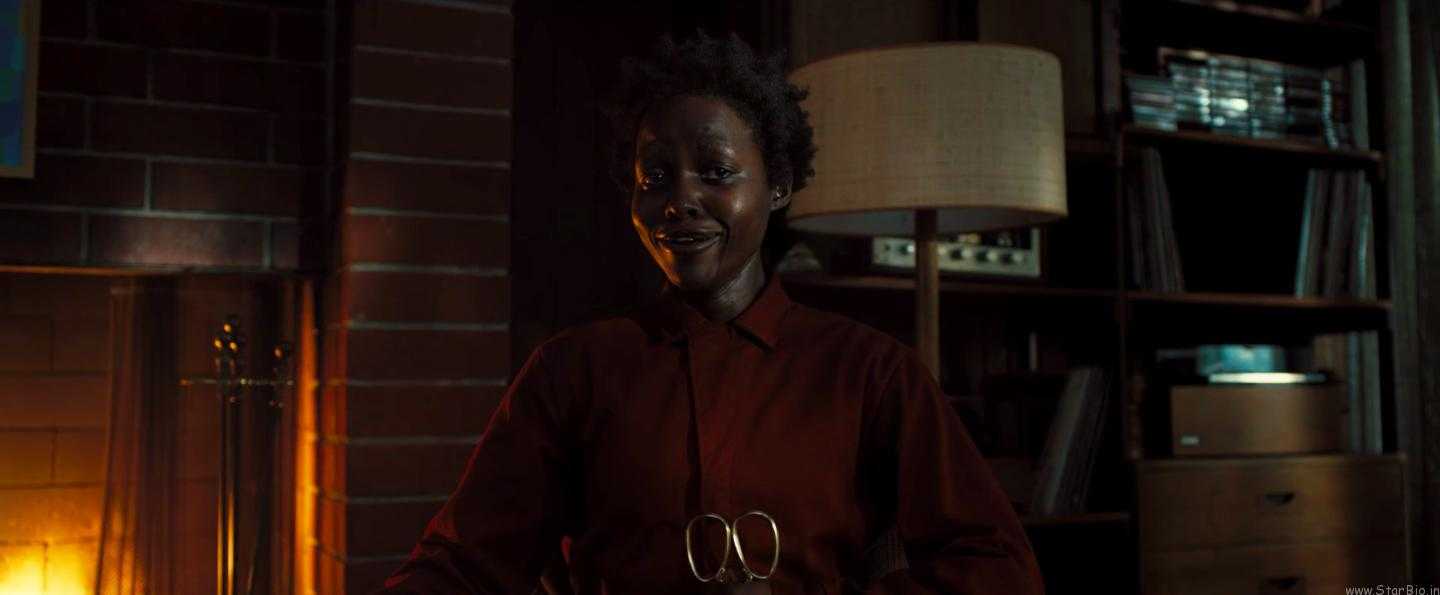Spoilers ahead for Us.
After all the creepy revelations in Jordan Peele’s Us, he saves one more for the final moments of his latest horror film. In the closing moments of the movie, we learn that Adelaide Wilson (Lupita Nyong’o) isn’t quite who she says she is. It turns out that back in 1986, she didn’t just see her double, Red, in the funhouse at the beach. Red kidnapped Adelaide and swapped places with her. The woman we’ve been following for the whole movie is actually Red and is the “soulless” double, and the woman who organized the uprising of the doubles is actually Adelaide.
For some, this may cause you to double back on the movie and wonder if all of “Adelaide’s” actions are actually in service to the doubles, but the “how” of it, as I’ve explained before, is ultimately far less interesting. The mythology of Us provides a cursory explanation of how things unfolded, but they’re not the point of the movie. Instead, we should look at the subtext of the story, and here we find the most disturbing revelation of all.
We’re told earlier in the film that the doubles couldn’t reasonably function as doubles because they lacked a soul, and that for all the copying the government could do, they couldn’t replicate that one part. Given the behavior we see from all the doubles–killing with abandon, showing no remorse over their actions, etc.–that would seem to hold true. But switching Red and Adelaide leads to something far unnerving, which is that the concept of a “soul” is a luxury provided by those who have the comfort of freedom and choice. The reason the doubles are “soulless” isn’t because the soul couldn’t be copied, but because they never had a chance at one in the first place.
By swapping Red and Adelaide, we see a strong argument in favor of nurture over nature. If Red truly had no “soul”, then she never could have adapted to life above ground. She couldn’t have expressed herself through dance, found love, or been a part of a family. Conversely, if a “soul” does exist, then it can just as easily be worn away by circumstance. Adelaide starts out a normal girl, but after spending decades underground with the doubles, she eventually goes insane and decides to put together a murderous uprising.
Furthermore, as the movie unfolds, we see that we’re not so special and not so different. The Wilson family warms up pretty easily to the violence required to survive because fear of the other is such a motivating factor. We’re desperate to hold on to what’s “ours”, and that zero-sum game is represented by the uprising of the doubles. We can’t live in peace with these doubles; only one can survive, and as we see in the Red/Adelaide relationship, there’s not enough to go around. Someone has to live below and someone has to live above, but they cannot live together. Ultimately, that makes our differences with the doubles irrelevant. They want what we have and so do we. Simply saying that one side is “soulless” is a cop out.
The last brutal stab in Us isn’t that we each have our own unique and beautiful dark side because we are all unique and beautiful in our own special way. Instead, we are shaped by the privilege of our surroundings, ones we don’t get to choose. That’s not to say that choices don’t matter, but we should look at the luxury of who gets to have those choices in the first place. In order to have a normal existence, Red had to break the rules and steal Adelaide’s life. It may be easy to chalk that up to who does and doesn’t have a soul, but it would be wiser to see who is given an opportunity and who has to take it.

